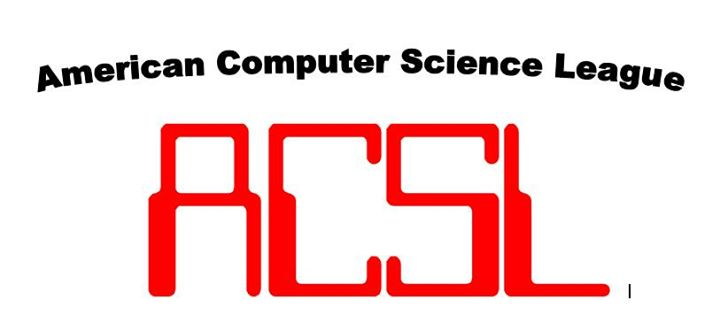First round of American Computer Science League Contest takes place
American Computer Science League (ACSL) is an organization that arranges computer science contests for all grade-levels. One of those contests is the ACSL contest, which is made up of four rounds. “Once the team gets decided, which is decided by the top scores in the contests that you take throughout the year, they get sent to the national competition,” sophomore Nilima Khanna said. The national competition is the ACSL All-Star Contest, which will take place on May 23, 2020.
December 13, 2019
The Jefferson Freshman and Intermediate Computer Team took the first round of tests on for the American Computer Science League (ACSL) Contest, a computer programming contest for elementary, middle, and high school students. This round occurred on Friday, Dec. 6 and consisted of five short-answer problems to be completed in thirty minutes and a take-home programming problem with a 72-hour limit.
“The problems are solving binary, some recursive functions, and then interpreting code and understanding it,” sophomore Nilima Khanna said.
The ACSL contest isn’t required of Computer Team members, but many students were eager to participate.
“You’re not required to do it, but it’s fun to do,” Khanna said. “It’s very fun and entertaining. I’ve been doing this contest for a few years, and I enjoy this contest a lot, plus I love CS [computer science].”
Like Khanna, many other members sign up for this contest year after year. They see it as a way to channel their love for both computer science and math.
“I’ve always been interested in computer science,” junior Richard Song said. “Ever since freshman year, when I started taking AP CS and learning about data structures, I just thought computer science was really cool.”
Some members reminisced about their first time in the ACSL contest back in freshman year.
“I was nervous because I had never done ACSL before, while some of my peers may have done it middle school, so I didn’t know what to expect,” sophomore Jeb Cui said. “But once I listened to some lectures and looked at the notes, it seemed pretty straightforward.”
The ACSL contest also requires students to think creatively to solve the problem. Many of the participants enjoyed this aspect of computing, and looked at it as a creative outlet.
“Some of the problems are really interesting,” Song said. “They require a lot of creativity to solve. I feel like finding ways to be more creative to solve the problems and discussing the problems with other people and looking at their solutions- I feel like those are all reasons that would motivate me to do this contest.”
“I was excited to see what problems they came up with this year,” Khanna said. “I think I did well.”






